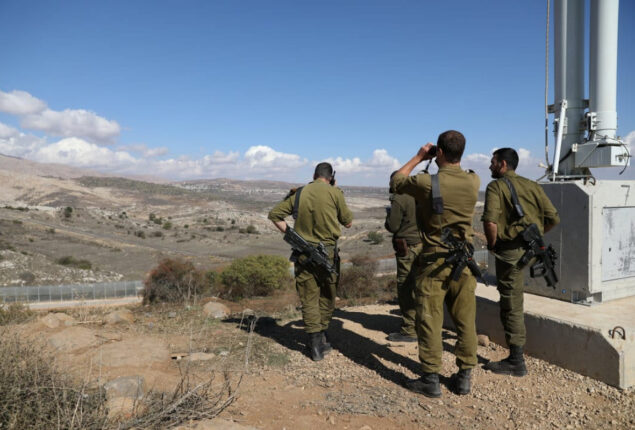US court reveals list of items seized from trump residence Mar-a-Lago
A federal court has made public a full list of items taken...

Israeli attacks are reducing Iranian aerial supply to Syria: Sources
Israel has increased its raids on Syrian airports in order to impede Tehran’s increasing use of aerial supply lines to carry supplies to allies in Syria and Lebanon, notably Hezbollah, according to regional diplomatic and intelligence sources,
Following interruptions to ground transfers, Tehran has adopted air transport as a more reliable means of ferrying military material to its forces and partner militants in Syria.
According to diplomatic and intelligence sources, Israel has long viewed its adversary Iran’s expanding entrenchment in Syria as a national security danger and is broadening the scope of its strikes to target this new mode of transportation.
The latest strikes on Wednesday night damaged Aleppo airport moments before the arrival of an Iranian plane, according to a commander in an Iran-backed regional alliance familiar with the incident.
According to the administration, Israel also carried out a hit on Damascus airport, damaging equipment. This is the second such attack on the airport since June, when Israeli air attacks on the runway rendered it inoperable for two weeks.
According to a Western intelligence source, the hit was also intended to block the arrival of a cargo plane.
An Israeli military spokesperson declined to comment on the reports. For years, Israel has launched attacks in Syria against what it has said as Iranian and Iran-backed forces stationed there during the 11-year conflict.
According to Ram Ben-Barak, chairman of the Knesset Foreign Affairs and Defence Committee, Israel’s purpose in Syria is to prevent Iran from “establishing another front against Israel in Syria and strengthening Hezbollah’s capabilities in Lebanon.”
In an interview with Tel Aviv 102 FM, he claimed that Israel has “managed to foil this scheme in numerous ways.”
Syria’s foreign minister replied to Wednesday’s air attacks by claiming Israel was “playing with fire” and endangering regional security.
According to a regional diplomatic source, the strikes signalled a shift in Israeli targeting. “They started to hit infrastructure used by the Iranians for ammunition supplies to Lebanon,” the source said.
“In the past it was only the supplies but not the airport. Now, they hit the runway,” the source added.
According to a Western intelligence source based in the region and a Syrian military defector acquainted with the strikes’ objectives, this shift has been triggered by Iran’s increasing use of commercial airliners rather than ground transfers to shuttle weaponry into Syria’s two major airports.
According to the intelligence source, Israel’s intelligence has shown that “more flights are being used” to move weapons and small military hardware that “can be carried on the routine civilian flights from Tehran.”
The US sanctioned Mahan Air in 2019 for delivering weapons and personnel to Iranian military in Syria.
According to the Syrian military defector, such weaponry often includes miniature UAV drone components, precision-guided missile pieces, and night vision technology that can be “placed in a carton in a civilian plane.”
Local rivalries and turf fights along the Iraqi-Syrian border, where pro-Iran Iraqi militias are based, have made ground transfers across Iraq, Syria, and into Lebanon less enticing, according to the defector.
After the Damascus airport was bombed in June, Iran and its allies began to increasingly use the Aleppo airport for transfers, prompting the strikes two months later.
According to Nawar Shaaban, an expert at the Omran Centre for Strategic Studies who focuses on Syria, the strikes also provide hints as to where Iran is now extending its entrenchment.
While the strikes were previously focused on areas around Damascus and military zones in the northwest, their expansion to Aleppo and even coastal zones underscore sites from which Israel feels a strategic threat, he said.
“The dangerous thing is that when we look at these areas that are being hit, it tells us that Iran has spread out more,” Shaban said.
“Every time we see a strike hit a new area, the reaction is, ‘whoah, Israel hit there’. But what we should be saying is, ‘whoah, Iran is there’.”
Catch all the World News, Breaking News Event and Latest News Updates on The BOL News
Download The BOL News App to get the Daily News Update & Follow us on Google News.